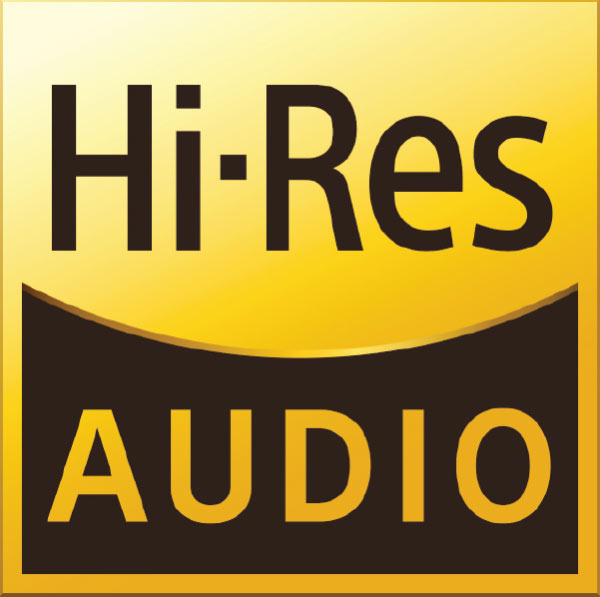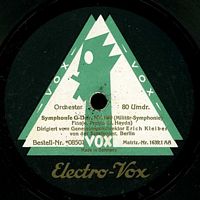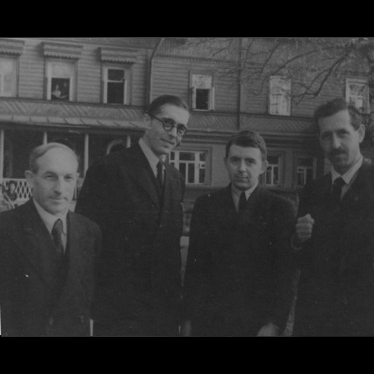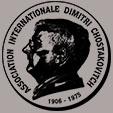Étiquette : Yehudi Menuhin
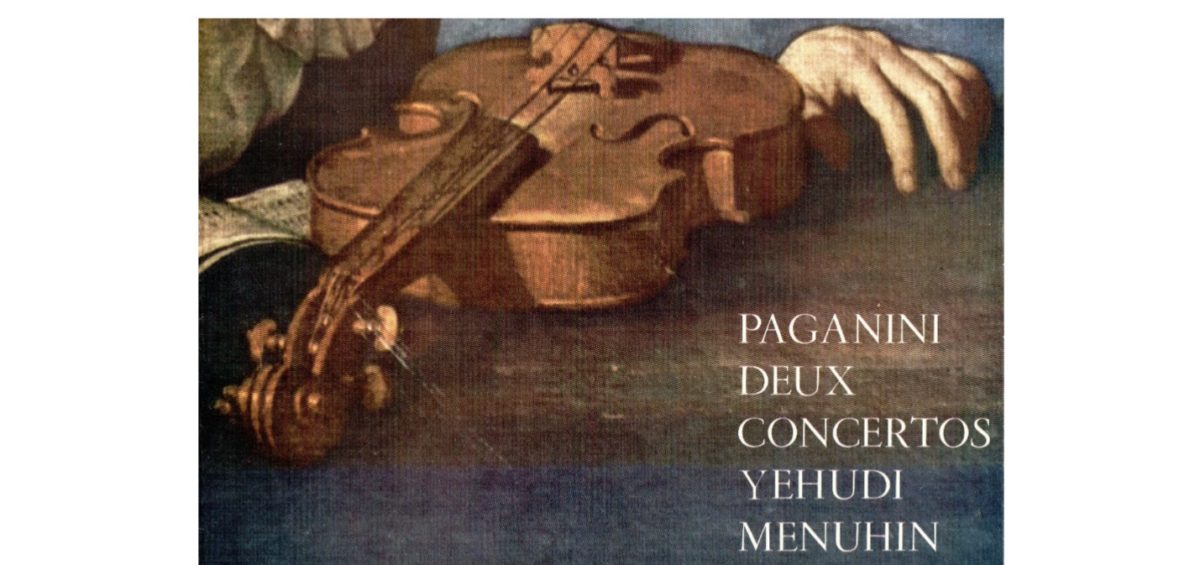
Niccolo Paganini
Yehudi Menuhin – Anatole Fistoulari
Concerto n°1 Op.6
London Symphony Orchestra (LSO)
London Abbey Road Studio n°1 – 21 May 1955
Concerto n°2 Op.7
Philharmonia Orchestra
London Abbey Road Studio n°1 – 3 October 1950
Source 33t /LP: FALP 30057
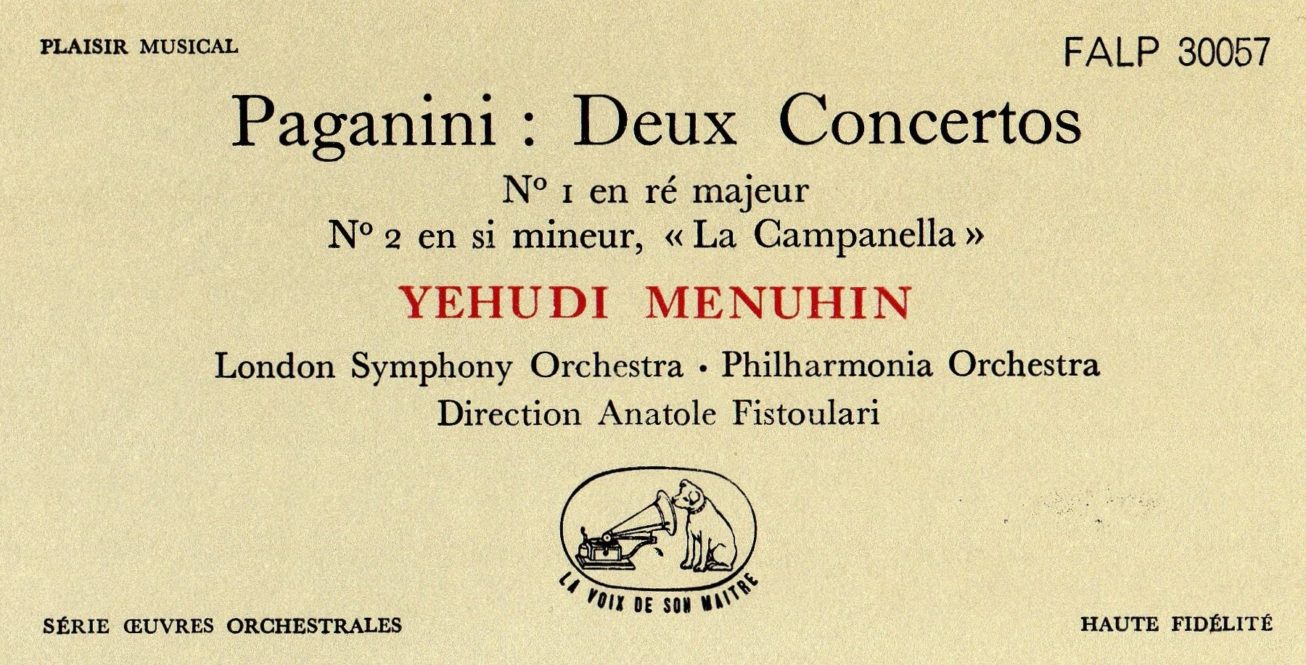
Pour le microsillon, Menuhin a enregistré deux fois les Concertos n°1 et 2, une première fois avec Anatole Fistoulari (en 1955 avec le LSO pour le Concerto n°1, et en 1950 avec le Philharmonia pour le Concerto n°2), et ensuite en 1960 avec le Royal Philharmonic (RPO) et Alberto Erede. Il a également gravé le Concerto n°1 du temps des 78 tours, en 1934, avec Pierre Monteux et l’orchestre Symphonique de Paris (OSP). L’éditeur a le plus souvent privilégié l’enregistrement stéréo avec Erede, alors que Fistoulari, chef méconnu, s’avère être le partenaire idéal. Avec la chaleur expressive de Menuhin, les interprètes nous font la démonstration que jouer ces deux œuvres n’est pas juste une question de pure virtuosité, mais qu’elles ont bien plus de substance qu’on ne le pense habituellement. De plus, les prouesses vertigineuses que Paganini demande au violon s’accompagnent d’une sorte d’ ’ébriété musicale’ qui l’apparente à Berlioz.

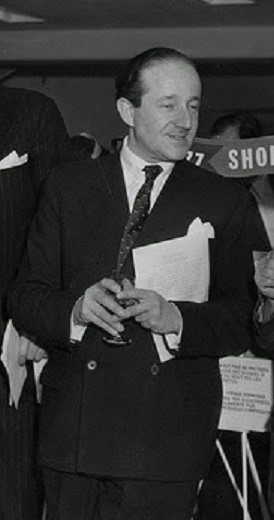 Anatole Fistoulari
Anatole Fistoulari

In the LP era, Menuhin made two recordings of the Concertos n°1 and 2, the first with Anatole Fistoulari (in 1955 with the LSO for Concerto n°1, and in 1950 with the Philharmonia for Concerto n°2), and later in 1960 with the Royal Philharmonic (RPO) and Alberto Erede. He also recorded the Concerto n°1 in the 78 rpm era, in 1934, with Pierre Monteux and the Orchestre Symphonique de Paris (OSP). Publishers have usually favoured the stereo recordings with Erede, but Fistoulari, an underrated conductor, is the ideal partner. With Menuhin’s expressive warmth, the performers show us that playing these two works is not just a matter of pure virtuosity, but that they have much more substance than is usually thought. Moreover, the dizzying feats that Paganini demands of the violin are accompanied by a kind of ‘musical inebriation’ that makes him somehow akin to Berlioz.
Les liens de téléchargement sont dans le premier commentaire. The download links are in the first comment
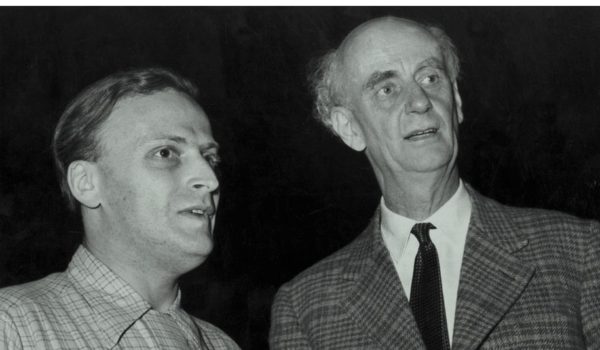
Yehudi Menuhin & Wilhelm Furtwängler
Mendelssohn: Concerto Op.64 Berliner Philharmoniker (BPO)
Berlin Jesus-Christus Kirche – 25 & 26 Mai 1952
Eng: Robert Beckett
______
Beethoven: Romances Op.40 & 50 Philharmonia Orchestra
London Kingsway Hall – 9 April 1953
Prod: Lawrence Collingwood & David Bicknell – Eng: Douglas Larter
Source: Bande/Tape 19 cm/s / 7.5 ips HTA 2
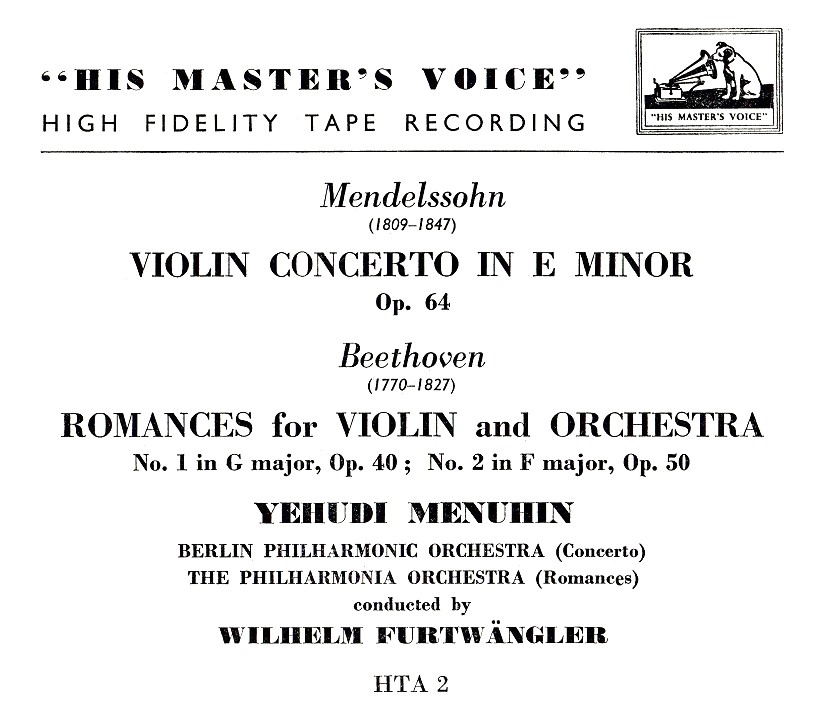
Menuhin et Furtwängler ont joué pour la première fois ensemble le Concerto Op.64 de Mendelssohn le 29 septembre 1949 au Royal Albert Hall de Londres avec les Wiener Philharmoniker.
Avec le Berliner Philharmoniker (Berliner Philharmonisches Orchester) de retour d’une tournée qui s’est déroulée entre le 24 avril et le 19 mai 1952, ils ont joué ce Concerto au Titania Palast de Berlin le 24 mai avant de l’enregistrer les 25 et 26 à la Jesus-Christus Kirche, salle utilisée habituellement par la Deutsche Grammophon et la RIAS.
C’était la première fois qu’après la guerre EMI enregistrait Furtwängler à Berlin. Il y eut ensuite un autre enregistrement berlinois, à savoir l’Ouverture de ‘Leonore II’ de Beethoven les 4 et 5 avril 1954 à la Musikhochschule, avec cette fois une équipe d’enregistrement allemande (Prod: Fritz Ganss: Eng: Horst Lindner), peut-être un test annonciateur d’un changement de politique discographique qui n’a malheureusement pas pu se concrétiser en raison du décès du chef d’orchestre. On peut penser en effet qu’EMI aurait souhaité enregistrer l’année suivante avec Furtwängler et le BPO les Kindertotenlieder de Mahler avec Fischer-Dieskau (l’œuvre a été jouée à Berlin en décembre 1953, et un enregistrement à Londres en mars 1954 avec le Philharmonia a été annulé) ainsi que le Deutsches Requiem de Brahms avec Grümmer et Fischer-Dieskau, deux projets qui ont été confiés in fine à la direction de Rudolf Kempe.
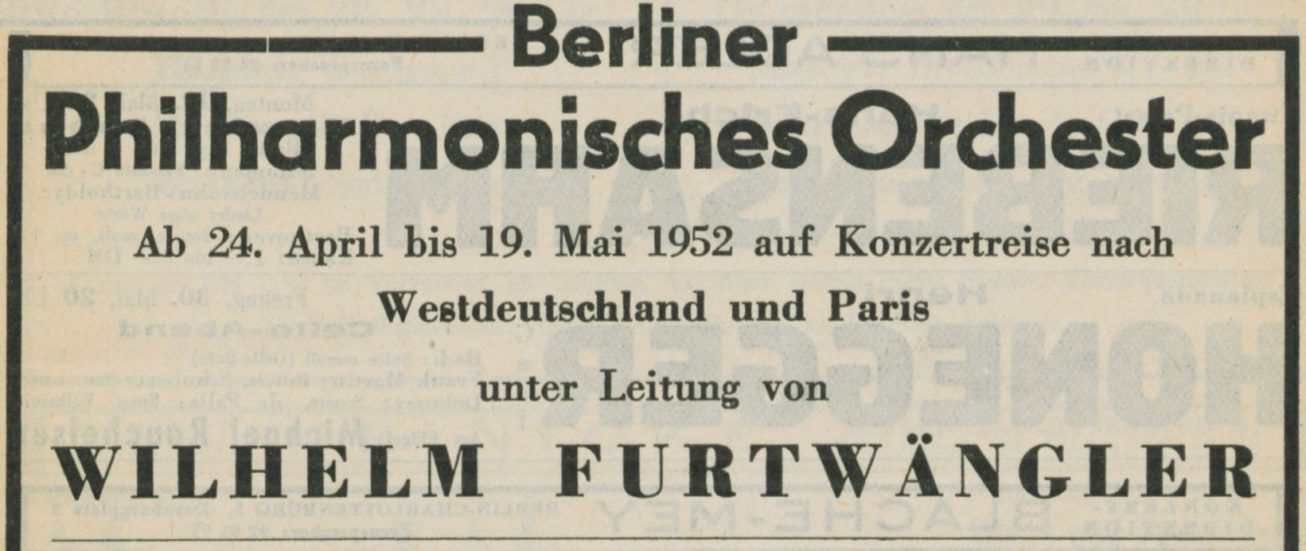
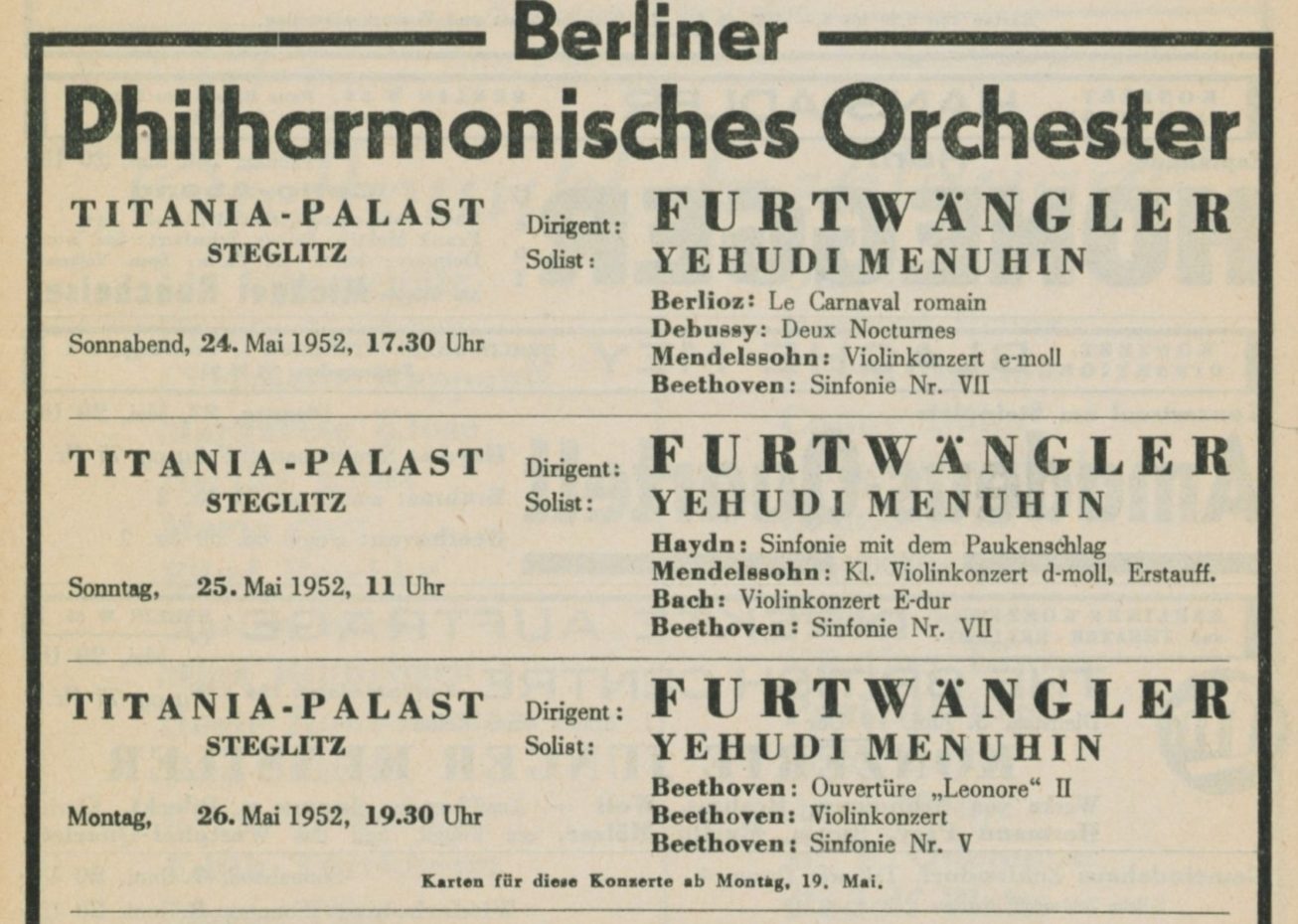
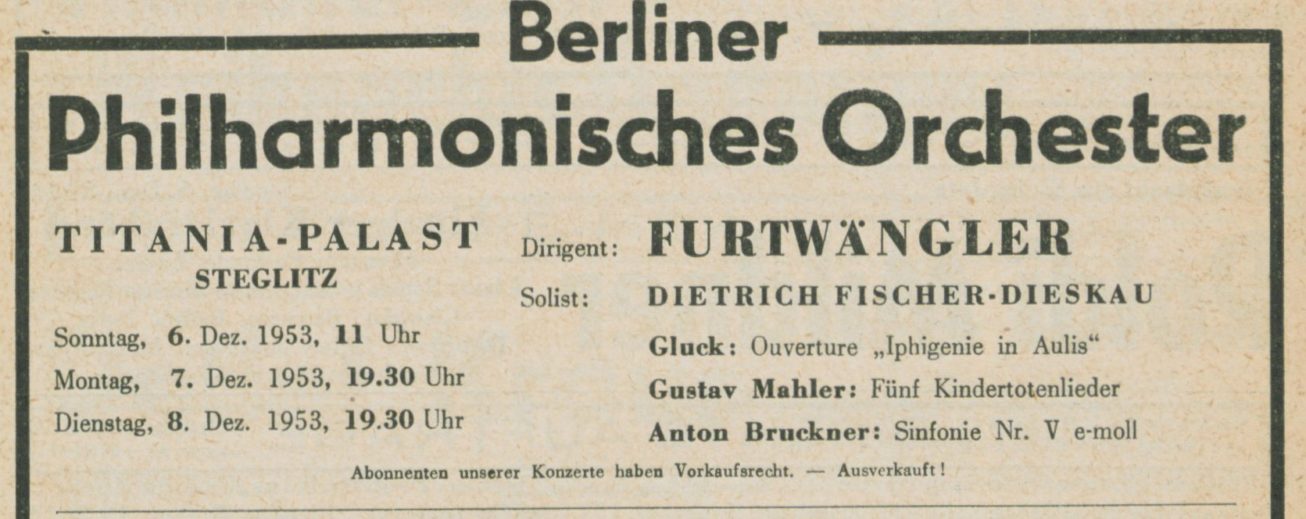
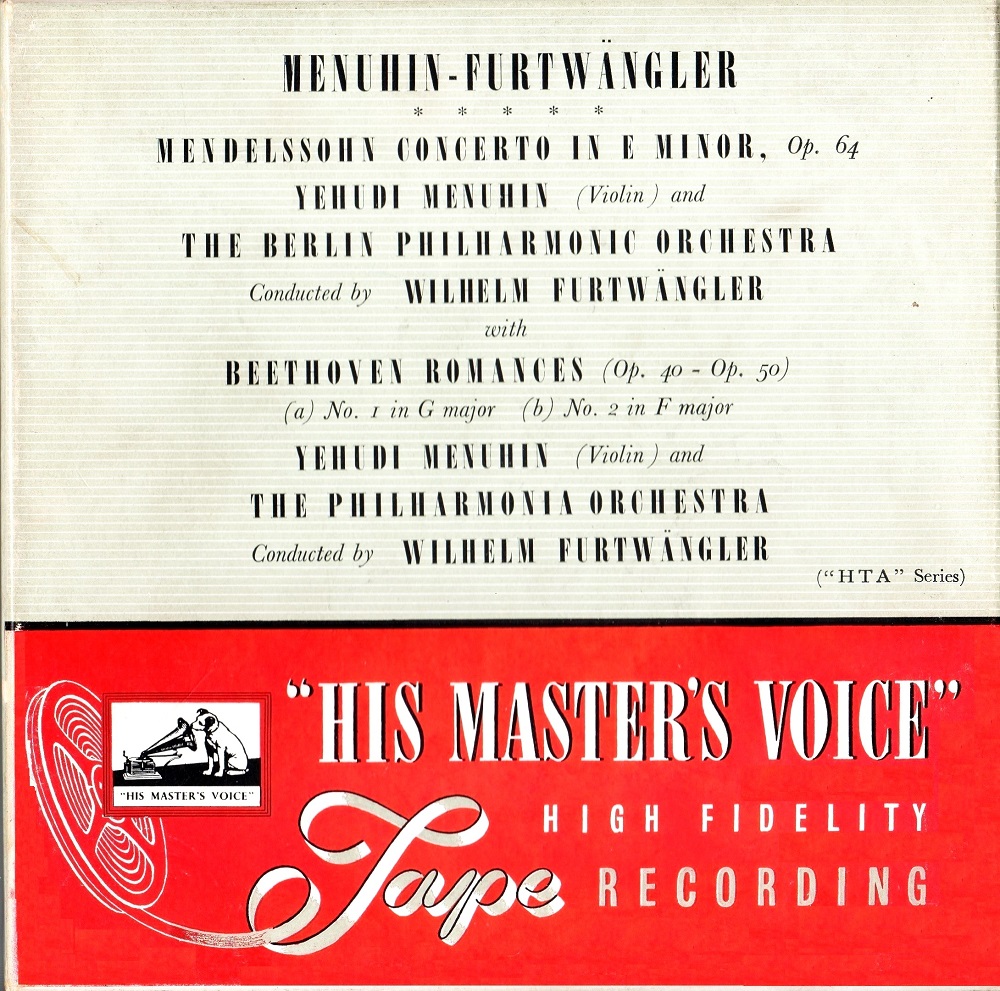
Menuhin and Furtwängler performed Mendelssohn’s Concerto Op.64 together for the first time on 29 September 1949 at London’s Royal Albert Hall with the Wiener Philharmoniker.
With the Berliner Philharmoniker (Berliner Philharmonisches Orchester) on their return from a tour that lasted from 24 April to 19 May 1952, they played this Concerto at the Titania Palast in Berlin on 24 May before recording it on 25 and 26 May at the Jesus-Christus Kirche, a venue known as being used by Deutsche Grammophon and RIAS.
It was the first time after the war that EMI recorded Furtwängler in Berlin. There was later another recording in Berlin, Beethoven’s Overture ‘Leonore II’ on April 4 and 5 1954 at the Musikhochschule, this time with a German recording team (Prod: Fritz Ganss: Eng: Horst Lindner), maybe a test which heralded a change in recording policy that unfortunately could not materialise due to the conductor’s death. Indeed, one might think that EMI would have liked to record the following year with Furtwängler and the BPO Mahler’s Kindertotenlieder with Fischer-Dieskau (the work was performed in Berlin in December 1953, and a recording in London in March 1954 with the Philharmonia had been cancelled) as well as Brahms’ Deutsches Requiem with Grümmer and Fischer-Dieskau, two projects that were ultimately entrusted to Rudolf Kempe.
Les liens de téléchargement sont dans le premier commentaire. The download links are in the first comment
